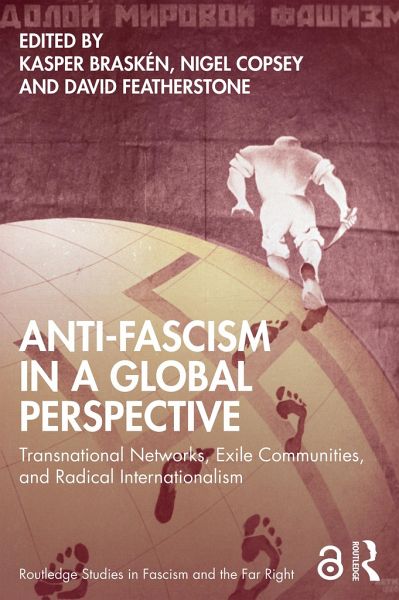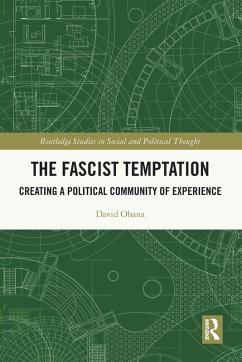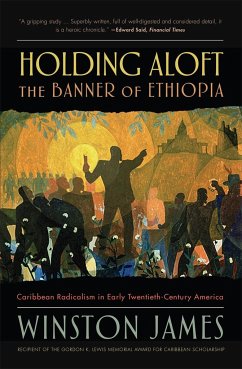
Anti-Fascism in a Global Perspective
Transnational Networks, Exile Communities, and Radical Internationalism
Herausgegeben: Braskén, Kasper; Copsey, Nigel; Featherstone, David J

PAYBACK Punkte
19 °P sammeln!
This book initiates a critical discussion on the varieties of global anti-fascism and explores the cultural, political and practical articulations of anti-fascism around the world.This volume brings together a group of leading scholars on the history of anti-fascism to provide a comprehensive analysis of anti-fascism from a transnational and global perspective and to reveal the abundance and complexity of anti-fascist ideas, movements and practices. Through a number of interlinked case studies, they examine how different forms of global anti-fascisms were embedded in various national and local...
This book initiates a critical discussion on the varieties of global anti-fascism and explores the cultural, political and practical articulations of anti-fascism around the world.
This volume brings together a group of leading scholars on the history of anti-fascism to provide a comprehensive analysis of anti-fascism from a transnational and global perspective and to reveal the abundance and complexity of anti-fascist ideas, movements and practices. Through a number of interlinked case studies, they examine how different forms of global anti-fascisms were embedded in various national and local contexts during the interwar period and investigate the interrelations between local articulations and the global movement. Contributions also explore the actions and impact of African, Asian, Latin American, Caribbean, and Middle Eastern anti-fascist voices that have often been ignored or rendered peripheral in international histories of anti-fascism.
Aimed at a postgraduate student audience, this book will be useful for modules on the extreme right, political history, political thought, political ideologies, political parties, social movements, political regimes, global politics, world history and sociology.
Chapters 5 and 10 of this book are freely available as downloadable Open Access PDFs at http://www.taylorfrancis.com under a Creative Commons Attribution-Non Commercial-No Derivatives (CC-BY-NC-ND) 4.0 license.
This volume brings together a group of leading scholars on the history of anti-fascism to provide a comprehensive analysis of anti-fascism from a transnational and global perspective and to reveal the abundance and complexity of anti-fascist ideas, movements and practices. Through a number of interlinked case studies, they examine how different forms of global anti-fascisms were embedded in various national and local contexts during the interwar period and investigate the interrelations between local articulations and the global movement. Contributions also explore the actions and impact of African, Asian, Latin American, Caribbean, and Middle Eastern anti-fascist voices that have often been ignored or rendered peripheral in international histories of anti-fascism.
Aimed at a postgraduate student audience, this book will be useful for modules on the extreme right, political history, political thought, political ideologies, political parties, social movements, political regimes, global politics, world history and sociology.
Chapters 5 and 10 of this book are freely available as downloadable Open Access PDFs at http://www.taylorfrancis.com under a Creative Commons Attribution-Non Commercial-No Derivatives (CC-BY-NC-ND) 4.0 license.














